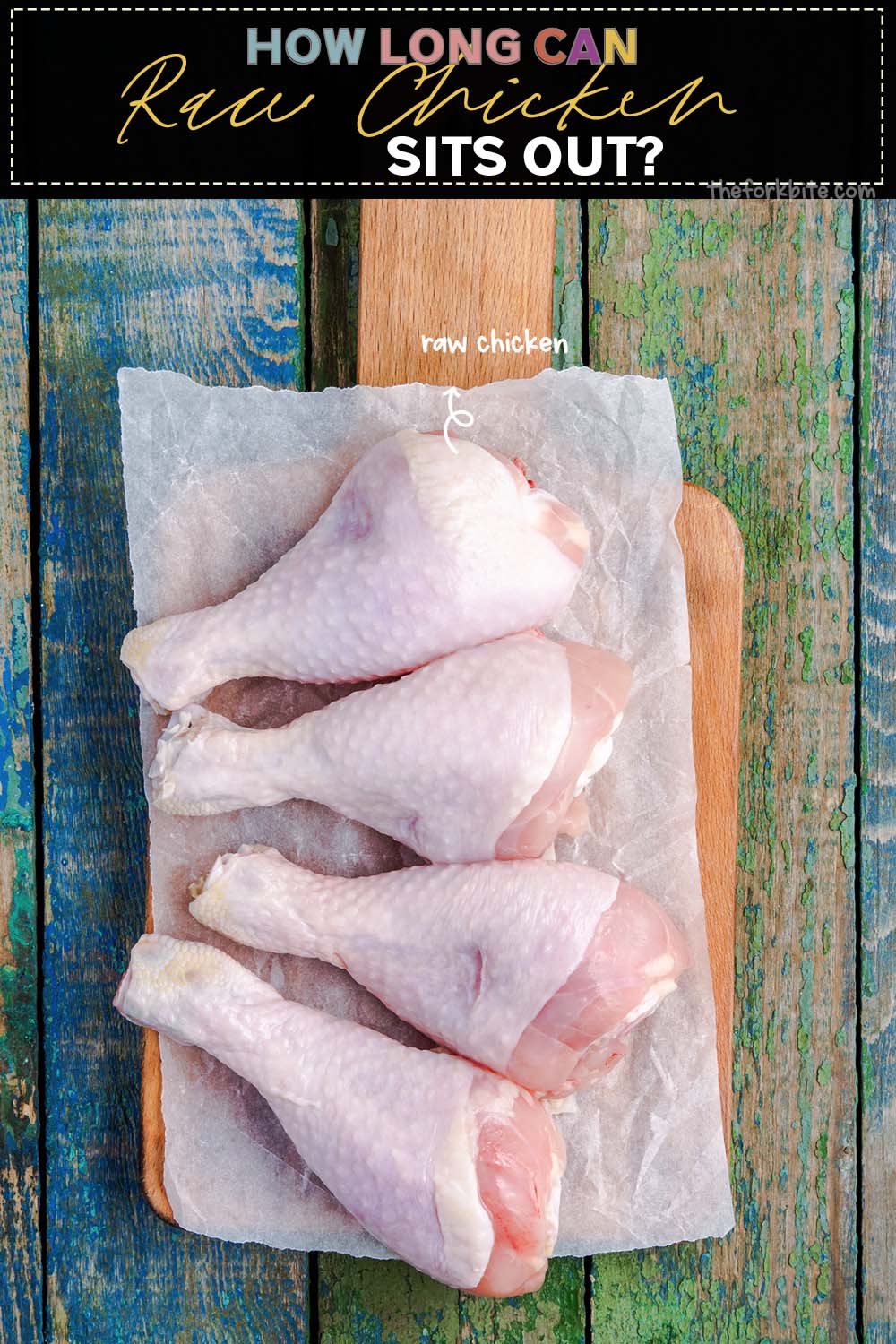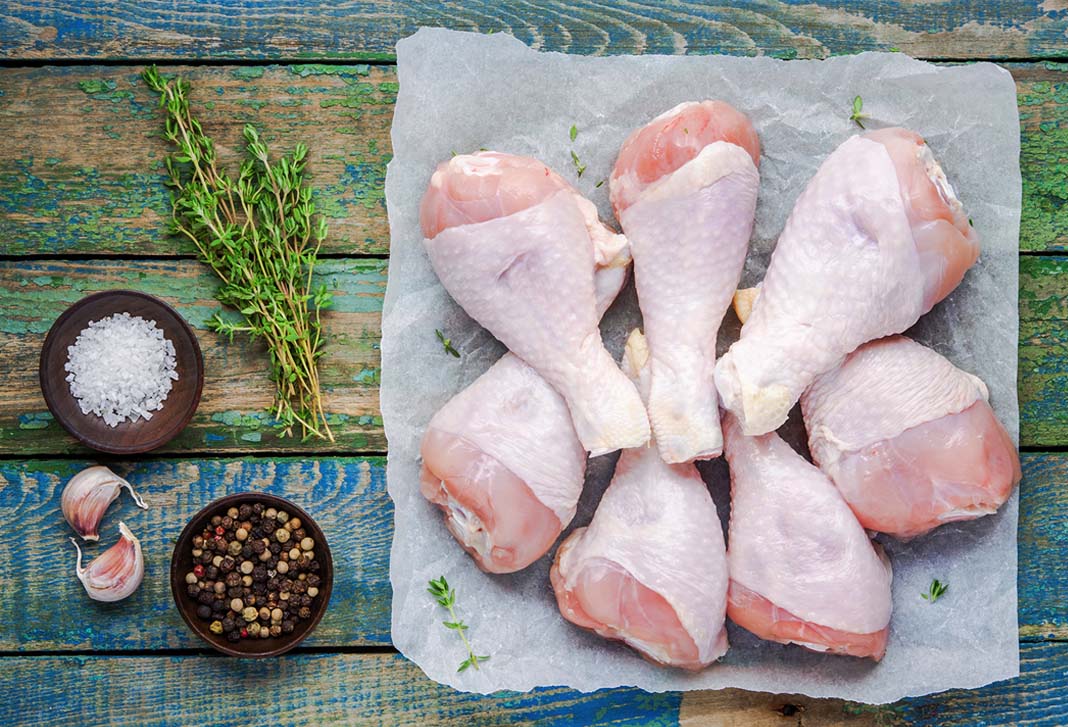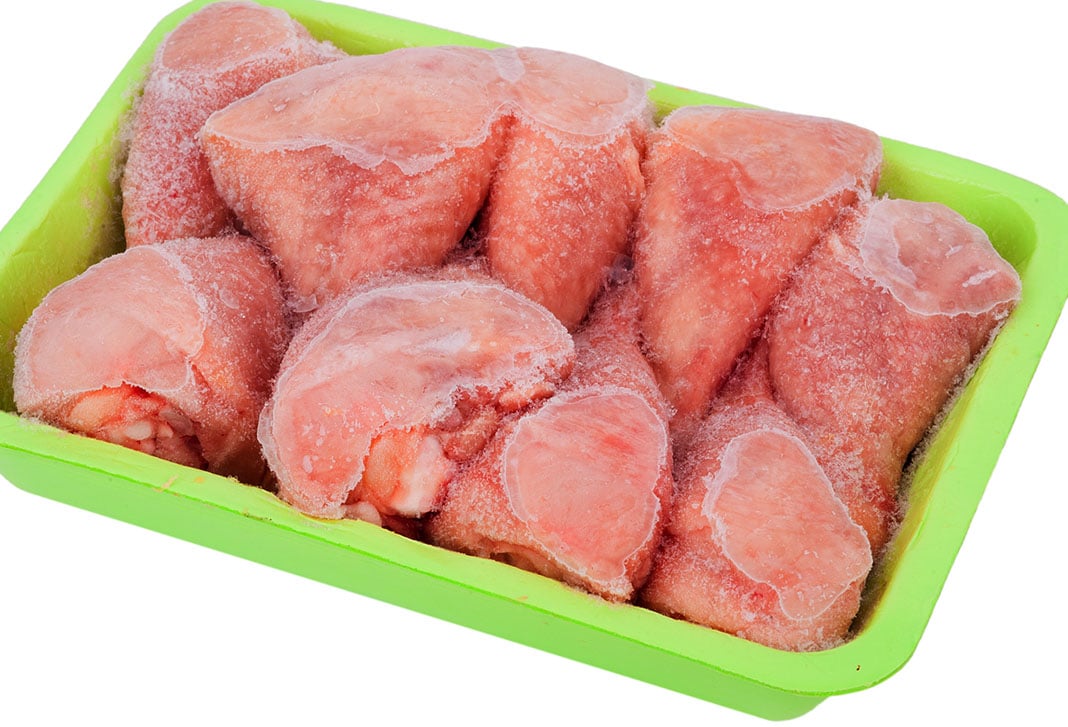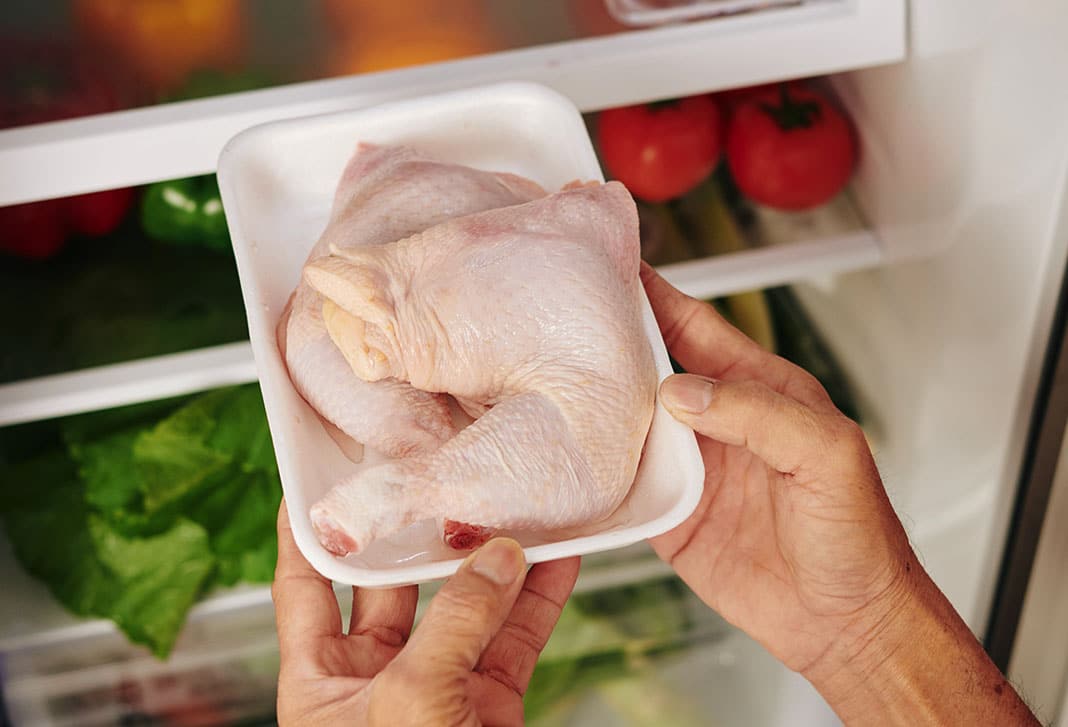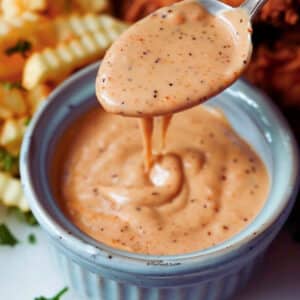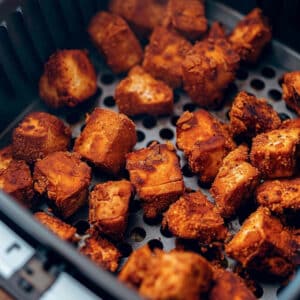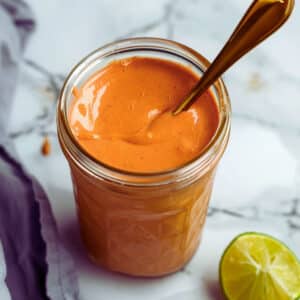What is a safe time for the uncooked chicken to stay out of the fridge? Why is it that poultry can go off so rapidly? What is the best way of dealing with poultry products to make sure that you're not exposing your friends and family to potential food poisoning?
The questions posed above are essential, and the fact of the matter is that many people are not aware of the answers.
Whether we are talking cooked or uncooked poultry, it will only remain good in your fridge for a short time before beginning to go bad. If it does, it is unsafe to consume.
The problem is that the tell-tale signs that chicken has gone off are not immediately apparent. So how can you tell when you need to take action to avoid making anyone who eats bad chicken, becoming ill? Read on and find out.
How long will raw chicken stay good in the fridge?
The advice from the USDA and FDA concerning raw chicken, whether we're talking about a whole bird or various cuts, is that it should not be kept in a refrigerator for more than one or two days.
If we are talking about previously frozen chicken, the one or two-day recommendation comes into effect once the bird has been completely thawed out.
How long can chicken sit out?
Chicken ought not to be kept outside of the fridge for any longer than two hours. The general recommendation is to throw meat away, both cooked and uncooked, if it has been sitting at room temperature for over this length of time.
According to the kitchen.com website, the normal room temperature is 70° Fahrenheit (21°Celsius). If the room temperature is any higher than the norm, say 90°F or above, then the recommended maximum time for keeping food out in such an environment comes down to only one hour.
Should you toss it or keep it?
- If food perishables are not stored per recommendations, they should be discarded and never cooked or eaten.
- Whether the food in question is cooked or uncooked, it can develop damaging bacteria well before a tell-tale smell is present.
- If a food product is still in its packaging, consumers must be aware of the relevant best-by, and use-by dates printed on said packaging and act accordingly.
Is it safe to eat chicken that was left out overnight?
Food products, including chicken, left outside of the fridge at room temperature for more than two hours, are not safe to eat. They must not be cooked or reheated since harmful bacteria has had the opportunity to contaminate the food.
Bacteria produce toxins, and although you might reheat contaminated chicken at high temperatures, those toxins will still be present.
So, for those people who believe that food left out of the fridge overnight at room temperature is okay to eat providing it is reheated - they need to think again.
We've all done it - gone to bed at night, and without realizing, have left food on the table or working surface. If this is what you find when you wake up the next day, throw any left-out food in the bin. Better to be safe than sorry.
How long can cooked chicken sit out at room temp?
Cooked chicken is a foodstuff, and you should observe the recommendations we have already been over. So the answer to how long cooked chicken can sit out at room temperature is 2 hours - not forgetting that if the temperature is 90°F, that 2 hours becomes 1 hour. Any longer - bin it.
What is the danger zone?
Concerning food handling, the USDA has something that they refer to as the "Danger Zone." This relates to the temperature range within which food can become host to rapidly multiplying, harmful bacteria when left out for too long. These include Campylobacter, Escherichia Coli 0157:H7, Salmonella Enteritidis, and Staphylococcus.
The temperature spread, within which these bacteria can double in quantity in just 20 minutes, is 40°F to 140°F.
Cooked chicken, or any other food exposed to these danger-zone temperatures, must be refrigerated for two hours to avoid making people ill if they were to consume it.
Average home room temperature and food storage
Now knowing the food storage danger zone, it's important to remember that cooked chicken exposed to room temperatures above 90°F (32.2°C) has to be refrigerated within one hour, rather than the two hours recommended for foods exposed to lower room temperatures.
Leave nothing to doubt. If any of these recommendations are exceeded, throw the food in question away.
If you consider keeping cooked chicken to use as an ingredient in a dish you intend to cook in a few days, you must refrigerate it, ensuring that the storage temperature is below 40°F. Anything above, and you risk food poisoning.
Spoilage food and the storage period
Bear in mind that room temperature varies. Food left outside the fridge on hot summer days will have a shorter safety zone than it would on colder days when the temperature drops below 40°F.
- But sticking your cooked chicken in the fridge within the recommended exposure times doesn't mean it can stay in the refrigerator forever.
- The recommendation for refrigerated cooked chicken is that it can be kept safely for 3 to 4 days. However, if you were to freeze it, it would be safe for anywhere up to six months.
Gut Feel
It is best not to trust your gut feeling. Cooked chicken that has become unsafe to eat may not necessarily display any signs it is going off. There may be no outward evidence of mold, and it might not yet smell odd. But as I've said before several times, don't take any chances. If you are not 100% certain, it is safe to eat - bin it.
Eating a chicken straight after it has been cooked is a lot tastier than the meds you might have to take after eating off a cooked chicken.
Storing chicken safely
Knowing how to store cooked chicken in terms of packaging is important too. Just throwing it into a container and putting it in your fridge won't cut it - mostly if it's left uncovered. Chicken exposed in this haphazard manner is likely to absorb the smells and tastes of other uncovered foods in the same refrigerator. It won't taste as it should.
Picnic chicken and sandwiches
People sometimes forget about food storage temperature when preparing a picnic, and cooked chicken is an all-time picnic favorite. But of course, the same rules still apply. Stuffing the cooked chicken into a Tupperware container doesn't automatically mean it will remain safe to eat for hours.
Unless you will lower the temperature, the food is stored by putting it into a cooler bag full of ice packs; you should be eating it within two hours max - maybe even less depending on the heat of the day.
The same goes for taking chicken sandwiches to work to eat for lunch. If your workplace has a fridge, pop your sandwiches into it when you arrive - just as long as your journey time to work didn't exceed two hours.
Refrigeration and freezing chicken
- Uncooked chicken and other meats, for that matter, can be kept safely in a refrigerator for up to two days. Any longer than that, and it ought to be thrown it away. If we are talking about cooked chicken, however, as I said earlier, it can be kept safely refrigerated for up to four days - no longer.
- If you bought a fresh chicken to cook, then had a change of plans for whatever reason and you will no longer be cooking it within the recommended timeframes previously discussed, you can, of course, freeze it.
- A whole, an uncooked bird, is safe in your freezer for up to nine months.
- If we are talking about leftover cooked chicken, the safe freeze time reduces. It's recommended to eat defrosted, frozen leftovers within two to six months of them being frozen. Leave it any longer, and the taste deteriorates.
Rotten poultry leads to these health problems
As I mentioned before, cooked chicken that has become spoiled doesn't always give you any outward indicators that it has gone off. It may look okay and not have a foul odor. But, remember the golden rule? Don't risk your health by taking unnecessary chances. Food poisoning is very unpleasant and can even kill!
The fact of the matter is that we Americans eat chicken more than any other meat or poultry. Raw chicken, in particular, can be problematic, healthwise. It often contains nasties like Campylobacter, Clostridium Perfringens, and Salmonella.
These bacteria can be present in undercooked chicken or other foods, including veggies and salads that come into contact with raw chicken blood and juices during food preparation. They can all cause nasty cases of food poisoning.
Escherichia coli, which is more commonly referred to as E. coli, is another nasty bacterium that can proliferate in chicken and other meats. As well as food poisoning, it can lead to kidney failure.
Although you need to take care when prepping, cook, and store chicken, don't overreact and avoid it altogether.
Follow the guidelines I have laid down, and all will be well.
Tips to avoid buying rotten chicken
Even though you might adhere to the two-hour recommendation plus correct refrigeration and freezing advice, it is still possible for a chicken to go off. It can be caused because of issues when it was sold.
Here are three tips regarding what to look out for.
- Inspect the chicken before purchase to make sure it isn't slimy or smelly.
- Ensure that the integrity of any packaging isn't damaged and compromised.
- Look to see that it has been correctly refrigerated.
When you purchase a chicken, make sure that the store or market from which you buy it has a good reputation, and when it comes to the actual cooking of the bird, make sure you cook at a temperature above 165°F for the correct length of time. Correctly cooking meat will kill any bacteria.
Remember, if you have any leftovers, refrigerate them within two hours.
As the USDA and the FDA say, if cooked meat was off before you cooked it, it can still cause illness even if you follow the guidelines indicated above.
If when you examine meat, and it looks a little greyish, leave it well alone. It is an indicator it could have entered the "danger zone." The same goes if you detect the slightest rancid smell or you get a whiff of ammonia. Please don't risk it. It's not worth it.
Related questions
The general recommendation is that a frozen bird shouldn't be left outside the freezer for longer than two hours. I use a thermometer to ensure a defrosted chicken is safe to cook if its temperature is still under 45°F, no worries.
The timeframe for safe defrosting can vary a little. For example, if the bird is inside a sealed container, it could still be okay for cooking when left for more than a couple of hours. But at the risk of repeating myself too often - don't take any chances.
If you cook a whole chicken, make sure its thermal center has reached a temperature of 165°F (74°C). A Thermapen® Mk4 is an excellent device to use for this purpose.
It is best not to leave a chicken out overnight to defrost. Stick to the two-hour rule, and you won't go far wrong.
It's recommended to defrost the chicken in your fridge. It should only take between 30 and 60 minutes, maybe a little longer, depending on the bird's size.

